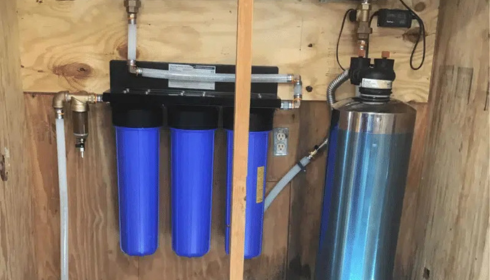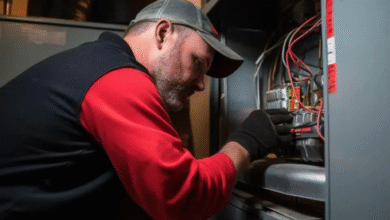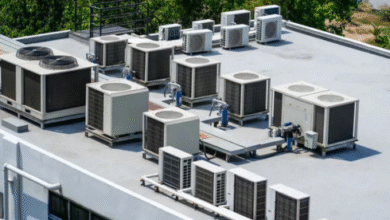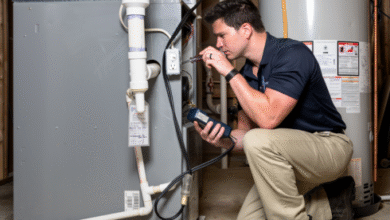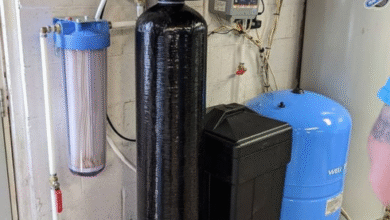There’s something uniquely Texan about pouring yourself a glass of water after a long, sun-soaked day. The trouble is, depending on where you live, that water might not always taste as crisp as it should. From mineral-heavy well water to the faint smell of chlorine drifting out of city taps, the truth is simple—Texas has its fair share of water quirks. And lately, more families have started paying attention, swapping quick fixes like pitcher filters for something a little more permanent.
Enter the idea of a whole house water filter Texas residents are buzzing about. It’s not just another home upgrade. It’s a small shift that can ripple into every corner of your daily life—cleaner showers, tastier cooking, fewer water spots on glassware, even healthier skin. Once you get used to it, it’s hard to imagine living any other way.
The Water We Live With
If you’ve spent time in different Texas cities, you’ve probably noticed each one has its own “flavor” of tap water. In Houston, some homeowners complain of high chlorine levels; in Austin, the limestone in the Hill Country can mean hard water that clogs pipes and leaves that chalky film on faucets. And out in rural areas, well water can bring its own set of mysteries—sulfur odors, sediment, or iron staining.
People usually don’t think much about it until there’s a problem big enough to notice. Maybe it’s a kid refusing to drink tap water because “it smells funny,” or maybe it’s realizing your white laundry never really looks white. That’s when homeowners start Googling solutions, and more often than not, land on whole-home systems instead of piecemeal fixes.
Why Go Whole-Home Instead of Room-by-Room?
A quick Brita jug might work fine for drinking water, but it won’t do much for your shower, your dishwasher, or your washing machine. The beauty of whole home water filtration services TX providers install is that they tackle the issue at the source—where the water enters your house. From that moment on, every faucet, showerhead, and appliance benefits.
It’s not just about taste either. Think about your morning shower. When chlorine and hard minerals are removed before they reach your bathroom, your skin feels less dry, your hair doesn’t frizz as easily, and you don’t need to slather on as much lotion afterward. Cooking becomes more enjoyable too—rice and pasta absorb purer water, coffee tastes less bitter, and even ice cubes look cleaner.
Common Questions Texans Ask Before Installing
Of course, most people hesitate before making a big decision like this. Here are the questions that come up most often:
- Does it remove everything?
Not quite everything, but close. Quality whole-house systems can filter out chlorine, sediment, metals, and even newer contaminants like PFAS, depending on the filter type. - What about maintenance?
It depends on the system. Some require filter changes every six months, while others last years before needing attention. - Is it worth the money?
When you add up bottled water costs, appliance wear and tear, and the sheer convenience of better water in every tap, most homeowners say yes.
The Installation Experience
Let’s be honest—most of us don’t want another DIY weekend project. And the truth is, this isn’t one of those things you should try to tackle with a wrench and a YouTube tutorial. Professional installation makes all the difference.
When you search for something like whole-house filter installation near me, what you’re really looking for is peace of mind. The right installer checks your home’s water pressure, inspects your plumbing layout, and makes sure the system matches your specific water quality. A bad install can cause pressure drops, leaks, or worse, a system that just doesn’t work the way it should.
Real-Life Impact: Stories from Around Texas
One family in Dallas mentioned their daughter’s eczema improved after switching to filtered water for bathing. A retired couple in San Antonio said their dishwasher finally stopped leaving cloudy residue on glasses. A small business owner in Waco noticed employees were drinking more water simply because it tasted better.
These aren’t miracle stories—they’re everyday reminders of how much water touches our lives. It’s not glamorous, and you won’t brag about it at a dinner party, but the difference is noticeable day in and day out.
The Bigger Picture: Health, Home, and Environment
Beyond personal comfort, there’s also the environmental angle. Many Texans rely on bottled water as a quick solution, but that habit adds up—to your budget and to the plastic recycling problem. A whole-house filter reduces that reliance, giving you the confidence to drink from your own tap without second-guessing it.
On the home front, appliances last longer when scale and sediment aren’t running through them daily. Water heaters, especially, benefit from reduced buildup, which means fewer costly repairs down the road. And while it might not feel like a “health gadget,” cutting down chlorine exposure and heavy metals is one of those subtle long-term decisions that makes sense for families who plan to stay in their home for years.
So, Is It Time to Take the Leap?
Nobody wakes up thinking, “I need a water filter today.” It usually starts with small annoyances that pile up until they can’t be ignored. That cloudy glass. That faint odor in the tap. That stubborn dry skin.
For Texans dealing with the quirks of local water, a whole-house system isn’t overkill—it’s simply a modern upgrade to match modern living. Clean water shouldn’t feel like a luxury, and once you’ve experienced it flowing from every tap, it won’t.
Final Thoughts
If you’re still on the fence, start small: get a water test, compare the numbers, and talk to neighbors who’ve made the switch. Chances are, you’ll hear the same thing—they wish they’d done it sooner. Because at the end of the day, investing in cleaner water is really investing in your home, your health, and your peace of mind.
